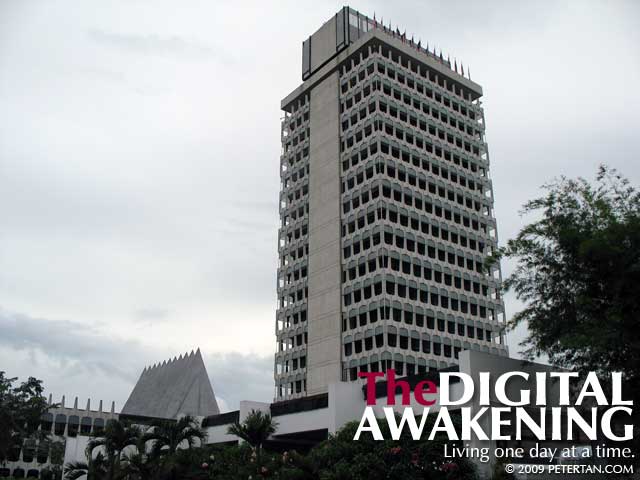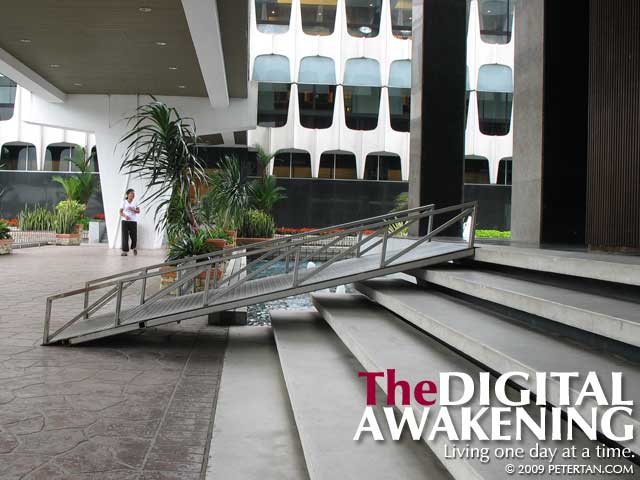
The Parliament Building Malaysia.
Dated December 20, 2006.
Photo by Wuan.
The Malaysian Parliament building is the symbol of democracy. It is there that bills are debated and laws passed to protect the wellbeing of the people. It also represents the people’s collective aspirations as a nation where the rights of each citizen is respected. From afar, its unique exterior is as magnificient as it is imposing. I have always been in awe of this impressive edifice.
Of all places, I had expected the Parliament building to be barrier free as we have the law and the code of practice to regulate such amenities. I was dead wrong. It was at the tower block of the Parliament that I came face to face with a steep ramp two years ago. That was the only access for wheelchair users into the building. Wheelchair users will find it hard to go up the ramp unassisted on that gradient. While watching the video of UMNO Youth confronting Karpal Singh outside the Parliament building, I caught a glimpse of Karpal being pushed up that same ramp.

The steep ramp into the lift lobby of the tower block next to the Main Building of the Parliament.
Dated December 20, 2006.
Photo by Wuan.
There are a couple aspects of the ramp that are wrong. The ramp is too steep. It does not comply to the minimum 1:12 gradient as the specified in MS 1184: Code of Practice on Access for Disabled Persons to Public Buildings. The recommended height for the handrails on both side is between 840mm to 900mm. The Uniform Building By-law 34A (UBBL 34A) stipulates that all public buildings must comply to MS 1184. However, I was made aware that this by-law does not apply to government buildings. How ironic.
If the government is serious in making Malaysia accessible to disabled people, it should begin with the Parliament building. The existing ramp should be replaced with one that is in compliance with MS 1184. Parliament should take the lead in this matter. Otherwise, it is hypocritical to enforce the UBBL 34A when the very building where laws of the nation are made fall short of the accessibility standards required of others.



